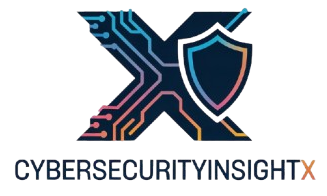Top Cybersecurity Remote Jobs in the US: High-Paying Roles & Exciting Opportunities
Are you ready to break into the world of high-paying, flexible careers? If you’re passionate about tech and crave the freedom to work from anywhere, Cybersecurity Remote Jobs could be your perfect path. With threats evolving daily, companies across the U.S. are on the hunt for skilled professionals who can protect their systems—from home. This guide dives deep into the most in-demand roles, salary trends, top employers, and what you need to stand out in 2025’s booming remote cybersecurity job market.
Table of Contents
Top Cybersecurity Remote Jobs in the US: Lucrative Salary Trends & Exciting Opportunities
As the demand for cybersecurity professionals continues to grow, the shift towards remote work has opened up new opportunities for individuals in the United States. With the rise of online cybersecurity job listings, you can now explore various career paths from the comfort of your own home.
The US job market is witnessing a significant transformation, with top employers increasingly offering cybersecurity remote jobs to attract and retain top talent. Understanding the current salary trends and top employers in the industry is crucial for anyone looking to advance their career in this field.
Key Takeaways
- Top employers offering cybersecurity remote jobs in the US
- Current salary trends for cybersecurity professionals
- Growth prospects in the cybersecurity industry
- Key skills required for remote cybersecurity jobs
- Tips for landing a remote cybersecurity job
The Current Landscape of Cybersecurity Remote Jobs
The shift towards remote work has revolutionized the cybersecurity landscape, opening up new opportunities for professionals across the US. As the cybersecurity industry continues to evolve, understanding the current landscape of remote cybersecurity jobs is crucial for both employers and job seekers. This section will explore the factors driving this change and the implications for the industry.
Why Remote Work is Transforming the Cybersecurity Industry
Remote work is transforming the cybersecurity industry in several key ways. Firstly, it allows companies to access a broader talent pool, unhindered by geographical constraints. This is particularly important in cybersecurity, where specialized skills are in high demand. The flexibility to work remotely also enhances employee satisfaction and productivity, contributing to a more effective cybersecurity posture.
As noted by cybersecurity expert, “The future of cybersecurity is not just about technology; it’s about people and processes. Remote work is a key component of this future.” – Rob Clyde, President of the ISSA International Board.
Key Statistics on Remote Cybersecurity Employment Growth
The growth of remote cybersecurity employment is supported by several key statistics:
- Over 60% of cybersecurity professionals are now working remotely at least part-time.
- The demand for remote cybersecurity jobs is expected to increase by 20% annually over the next five years.
- Companies that adopt remote work arrangements report a 15% increase in productivity among cybersecurity teams.
| Year | Remote Cybersecurity Jobs | Growth Rate |
| 2020 | 10,000 | 10% |
| 2021 | 12,000 | 20% |
| 2022 | 14,400 | 20% |
| 2023 | 17,280 | 20% |
Top Remote Cybersecurity Positions in 2023
As we dive into 2023, the demand for cybersecurity professionals continues to surge, with several key positions leading the charge in remote job opportunities. The shift towards remote work has not only changed the way companies operate but has also opened up new avenues for cybersecurity professionals to work from anywhere. In this section, we will explore the top remote cybersecurity job remote options that are in high demand.
Security Analysts and SOC Specialists
Security Analysts and SOC (Security Operations Center) Specialists play a crucial role in monitoring and protecting an organization’s network and systems from cyber threats. Their primary responsibilities include analyzing security incidents, implementing protective measures, and ensuring compliance with security protocols.
Required Skills: Knowledge of security frameworks, threat analysis, incident response, and security software.
Salary Range: $80,000 – $120,000 per year.
Penetration Testers and Vulnerability Assessors
Penetration Testers and Vulnerability Assessors are cybersecurity professionals who simulate cyber attacks on an organization’s computer systems to test their defenses. They identify vulnerabilities and provide recommendations for improvement.
Required Skills: Expertise in penetration testing tools, vulnerability assessment, and risk management.
Salary Range: $90,000 – $140,000 per year.
Cloud Security Engineers
Cloud Security Engineers are responsible for designing and implementing secure cloud-based systems for organizations. They ensure that cloud infrastructure is protected against cyber threats and comply with regulatory requirements.
Required Skills: Knowledge of cloud security architecture, compliance, and risk management.
Salary Range: $120,000 – $180,000 per year.
Security Architects and Consultants
Security Architects and Consultants design and implement an organization’s overall security strategy. They assess security risks and provide solutions to protect against cyber threats.
Required Skills: Expertise in security architecture, risk assessment, and compliance.
Salary Range: $150,000 – $220,000 per year.
These roles represent some of the best remote cybersecurity jobs available in 2023, offering a range of opportunities for professionals with different skill sets and interests.
| Job Role | Required Skills | Salary Range |
| Security Analysts and SOC Specialists | Knowledge of security frameworks, threat analysis, incident response | $80,000 – $120,000 |
| Penetration Testers and Vulnerability Assessors | Expertise in penetration testing tools, vulnerability assessment | $90,000 – $140,000 |
| Cloud Security Engineers | Knowledge of cloud security architecture, compliance | $120,000 – $180,000 |
| Security Architects and Consultants | Expertise in security architecture, risk assessment | $150,000 – $220,000 |
Entry-Level Remote Cybersecurity Jobs for Newcomers
With the rise of remote work, entry-level cybersecurity jobs are now more accessible than ever, offering a range of opportunities for newcomers. As technology advances and more companies move online, the demand for cybersecurity professionals continues to grow. This shift has opened up new avenues for individuals looking to start a career in cybersecurity without the need for prior experience.
Junior Security Analyst Opportunities
One of the most promising entry-level positions in remote cybersecurity is that of a junior security analyst. In this role, you’ll assist senior analysts in monitoring and analyzing security threats, implementing protective measures, and responding to incidents. Junior security analysts typically require a basic understanding of security frameworks, threat analysis, and risk management. To get started, you can look for job postings on platforms like Indeed, LinkedIn, or specialized cybersecurity job boards.
Key responsibilities of a junior security analyst include:
- Monitoring security event logs and identifying potential threats
- Assisting in the implementation of security measures and protocols
- Participating in incident response and disaster recovery efforts
- Conducting basic risk assessments and vulnerability scans
Help Desk and Technical Support Roles with Security Focus
Another entry point into the cybersecurity field is through help desk and technical support roles that have a security focus. These positions involve assisting users with technical issues while also handling security-related tasks such as password resets, access control, and basic security configurations. Many organizations offer these roles as remote opportunities, making them ideal for those looking to gain experience from home.
To excel in these roles, you’ll need:
- Strong technical skills, including knowledge of operating systems and networking fundamentals
- Excellent communication skills to effectively assist users
- Basic understanding of security principles and practices
Certifications That Open Doors for Remote Entry Positions
Obtaining relevant certifications can significantly enhance your chances of landing an entry-level remote cybersecurity job. Certifications demonstrate your commitment to the field and provide you with the necessary knowledge to perform the job effectively. Some of the most valuable certifications for entry-level positions include CompTIA Security+, CompTIA Cybersecurity Analyst (CSA+), and Cisco Certified Network Associate (CCNA) Security.
Key benefits of certifications:
- Enhanced credibility and job prospects
- Demonstrated expertise in specific areas of cybersecurity
- Staying up-to-date with the latest industry standards and practices
By focusing on these areas and obtaining the right certifications, you can position yourself for success in the remote cybersecurity job market. As you continue to develop your skills and experience, you’ll be well on your way to a rewarding career in this rapidly evolving field.
Leading US Companies Hiring for Cybersecurity Remote Jobs
As the demand for cybersecurity professionals continues to soar, numerous top US companies are now offering remote job opportunities. This shift is driven by the need to protect against increasingly sophisticated cyber threats and to maintain robust security measures across various industries.
Tech Giants: Amazon, Microsoft, Google, and IBM
Tech giants are at the forefront of hiring cybersecurity professionals for remote positions. Companies like Amazon, Microsoft, Google, and IBM are constantly looking for skilled individuals to enhance their cybersecurity infrastructure.
- Amazon: Offers a range of cybersecurity roles, from threat detection to incident response.
- Microsoft: Focuses on cloud security and threat intelligence, with various remote opportunities.
- Google: Employs cybersecurity professionals for tasks such as vulnerability assessment and security engineering.
- IBM: Provides cybersecurity services, including consulting and security software development, with remote work options.
Cybersecurity Specialists: CrowdStrike, Palo Alto Networks, FireEye
Cybersecurity specialist companies are also major employers of remote cybersecurity professionals. CrowdStrike, Palo Alto Networks, and FireEye are prominent players in this space, offering a variety of roles.
| Company | Specialization | Remote Roles |
| CrowdStrike | Endpoint security and threat intelligence | Threat analyst, incident responder |
| Palo Alto Networks | Network security and firewalls | Security engineer, network architect |
| FireEye | Advanced threat detection and incident response | Security consultant, threat researcher |
Financial Institutions: JPMorgan Chase, Bank of America, Capital One
Financial institutions are significant employers of cybersecurity professionals due to the sensitive nature of their data. JPMorgan Chase, Bank of America, and Capital One are among the top financial institutions hiring for remote cybersecurity positions.
- JPMorgan Chase: Offers roles in security operations, threat intelligence, and compliance.
- Bank of America: Focuses on cybersecurity risk management and security infrastructure.
- Capital One: Employs cybersecurity professionals for cloud security, threat detection, and incident response.
Government Contractors and Consultancies: Booz Allen Hamilton, Deloitte
Government contractors and consultancies also provide a range of remote cybersecurity job opportunities. Booz Allen Hamilton and Deloitte are notable examples, working on various government projects that require robust cybersecurity measures.
These companies offer a variety of roles, including security consulting, threat analysis, and cybersecurity strategy development. They often work on sensitive projects, requiring high levels of security clearance and expertise.
Cybersecurity Salary Trends Through 2025
As we look ahead to 2025, the landscape of cybersecurity salaries is poised for significant shifts. With the increasing demand for cybersecurity professionals, understanding the current and projected salary trends is crucial for both employers and job seekers.
Entry-Level Compensation Packages
Entry-level positions in cybersecurity are becoming increasingly competitive, with salaries ranging from $60,000 to $90,000. Factors such as location, certifications, and specific job roles influence these figures.
For instance, a junior security analyst with CompTIA Security+ certification can expect a starting salary around $65,000 in many US cities.
Mid-Career Salary Expectations
As professionals gain experience, their salaries reflect their added value to organizations. Mid-career cybersecurity professionals can earn between $90,000 and $130,000.
For example, a security consultant with CISSP certification and over five years of experience can command a salary around $110,000.
Senior-Level Compensation
Senior cybersecurity professionals, including those in leadership roles or with highly specialized skills, can earn salaries exceeding $130,000.
A chief information security officer (CISO) in a large corporation, for instance, can earn upwards of $200,000 annually.
The Impact of Remote Work
Remote work has introduced new dynamics into cybersecurity salary trends. While some companies offer similar salaries for remote and in-office positions, others adjust compensation based on location.
A comparison of salary trends for remote and in-office cybersecurity jobs reveals interesting insights:
| Job Role | In-Office Salary | Remote Salary |
| Security Analyst | $80,000 | $85,000 |
| Penetration Tester | $110,000 | $115,000 |
| CISO | $180,000 | $190,000 |
How to Find and Land the Best Remote Cybersecurity Jobs
Landing a remote cybersecurity job requires a strategic approach, from knowing where to look to presenting your skills effectively. As the demand for cybersecurity professionals continues to grow, so does the competition for these roles. To stand out, you need to be informed about the best resources for finding remote cybersecurity jobs and understand how to showcase your skills to potential employers.
Specialized Job Boards and Resources for Remote Security Positions
Utilizing specialized job boards is a crucial step in your job search. Websites like Remote.co, We Work Remotely, and CybersecurityJobsite list a variety of remote cybersecurity positions. These platforms often allow you to filter by job type, experience level, and location, making it easier to find the right fit for your skills and preferences.
Additionally, consider leveraging professional networks like LinkedIn and joining cybersecurity groups to stay updated on job listings and industry trends. Engaging with these communities can provide valuable insights and sometimes leads to job opportunities that are not advertised publicly.
Virtual Networking Strategies for Cybersecurity Professionals
Building a strong network is essential when searching for remote cybersecurity jobs—especially in today’s competitive market. Attending online events such as cybersecurity webinars, virtual summits, and interactive workshops is a strategic way to expand your connections and increase visibility in the digital space.
These events serve as more than just educational resources—they’re perfect places to connect with hiring managers, industry influencers, and peers who may recommend you for future opportunities. Whether you’re aiming for a career upgrade or exploring companies that offer the Best VPN Services of 2025, engaging with the professional community is key.
Maximize your digital presence by actively participating on platforms like LinkedIn and Twitter. Share articles related to the Best VPN Services of 2025, contribute to cybersecurity conversations, ask insightful questions, and comment on trending topics to establish authority and trust within the cybersecurity ecosystem.
Creating a Resume Tailored for Remote Cybersecurity Jobs
When applying for remote roles, your resume should clearly showcase your ability to thrive in a virtual environment. Emphasize remote work skills like self-management, communication, time discipline, and comfort with digital collaboration tools—skills often required by organizations offering some of the Best VPN Services of 2025.
Must-Have Technical Skills for Remote Cybersecurity Work
To stand out, highlight technical competencies that are in high demand among remote cybersecurity teams. Include experience with security frameworks (like NIST or ISO 27001), hands-on threat detection, vulnerability management, and proficiency in virtual collaboration platforms such as Zoom, Teams, or Slack.
Mention certifications like CISSP, CEH, or CompTIA Security+, as many employers offering the Best VPN Services of 2025 prioritize these qualifications in candidates working remotely.
Showcasing Remote Work Experience
Employers want assurance that you can handle responsibilities independently. Highlight remote work accomplishments with real examples—projects you’ve led, incidents you’ve resolved, or systems you’ve helped secure from afar. Stress your ability to coordinate with globally distributed teams using tools like Trello, Notion, or Jira.
This is especially valuable if you’re applying to cybersecurity roles at companies that provide some of the Best VPN Services of 2025, where asynchronous communication and proactive problem-solving are critical.
Final Thoughts: Position Yourself for Remote Cybersecurity Success
Whether you’re a seasoned analyst or a newcomer aiming to break into remote cybersecurity, aligning your experience with industry demands—especially in companies known for offering the Best VPN Services of 2025—can significantly boost your career opportunities.
By building a visible online presence, refining your resume, sharpening relevant tech skills, and showcasing your adaptability, you’ll be well on your way to landing a rewarding cybersecurity role—wherever you are in the world.
Overcoming Challenges in Remote Cybersecurity Work
With the rise of work-from-home cybersecurity careers, understanding how to mitigate the associated challenges is crucial. As you embark on or continue in your remote cybersecurity career, you’ll need to address several key areas to ensure success.
Securing Sensitive Data in Home Environments
One of the primary challenges of remote cybersecurity work is securing sensitive data in home environments. Unlike office settings, home environments often lack the robust security measures that are typically in place in a professional setting. To overcome this, you should:
- Implement strong passwords and multi-factor authentication for all devices and accounts.
- Use a virtual private network (VPN) to encrypt internet traffic.
- Keep software and operating systems up to date with the latest security patches.
- Use a secure and isolated network for work-related activities.
By taking these steps, you can significantly reduce the risk of data breaches and cyber threats in your home workspace.
Communication and Collaboration in Distributed Security Teams
Effective communication and collaboration are vital in distributed security teams. To facilitate this, teams can leverage various tools and strategies, such as:
- Utilizing collaboration platforms like Slack or Microsoft Teams for real-time communication.
- Implementing project management tools to track progress and assign tasks.
- Conducting regular virtual meetings to ensure everyone is aligned and informed.
Table: Tools for Enhancing Remote Team Collaboration
| Tool | Purpose | Benefits |
| Slack | Real-time communication | Enhances team connectivity and reduces email clutter |
| Trello | Project management | Helps in organizing tasks and tracking progress |
| Zoom | Virtual meetings | Facilitates face-to-face communication and team alignment |
Maintaining Work-Life Balance in High-Alert Positions
Maintaining a healthy work-life balance is crucial, especially in high-alert positions like cybersecurity. To achieve this balance, consider the following strategies:
- Establishing a dedicated workspace to separate work from personal life.
- Setting regular working hours and avoiding overtime when possible.
- Engaging in stress-reducing activities outside of work, such as exercise or hobbies.
By implementing these strategies, you can reduce the risk of burnout and maintain your overall well-being.
Conclusion: Navigating Your Future in Remote Cybersecurity
As you’ve explored the world of remote cybersecurity jobs, you’ve gained a comprehensive understanding of the current landscape, top employers, and salary trends. With the knowledge that cybersecurity remote jobs are on the rise, you can now make informed decisions about your career path in this field. Cybersecurity careers remote USA offer a promising future, with top tech giants, cybersecurity specialists, and financial institutions hiring for various remote positions.
You can leverage specialized job boards, networking strategies, and a well-crafted resume to land the best remote cybersecurity jobs. As you navigate your future in this field, remember to stay focused on securing sensitive data, effective communication, and maintaining a work-life balance. With the right skills and certifications, you can excel in entry-level, mid-career, or senior-level roles, taking advantage of the growing demand for cybersecurity professionals in the US.
FAQ
What are the most in-demand remote cybersecurity job listings?
The most in-demand remote cybersecurity jobs include roles such as security analysts, penetration testers, cloud security engineers, and security architects. These positions are frequently listed on major online job boards and company career pages, including those from Amazon, Microsoft, and Google.
How do I find online cybersecurity job listings that offer work-from-home careers?
You can easily find remote cybersecurity job listings by searching on job platforms like Indeed, LinkedIn, and Glassdoor. Use keywords like “remote cybersecurity jobs” or “work-from-home cybersecurity careers.” Additionally, visiting the career pages of leading tech companies will help you find the latest remote job opportunities in cybersecurity.
What are the salary trends for remote cybersecurity employment in 2025?
In 2025, remote cybersecurity jobs show varying salary ranges depending on experience. Entry-level roles earn between $60,000 and $90,000, mid-career professionals earn between $90,000 and $130,000, and senior or specialized roles can command $130,000 or more. Remote work is opening up more opportunities but not significantly affecting salary expectations.
What certifications are required for entry-level remote cybersecurity jobs?
For entry-level remote cybersecurity jobs, certifications like CompTIA Security+, CISSP, and CEH are essential. Depending on the role, additional specialized certifications in cloud security or penetration testing may be needed.
How can I craft a remote-ready cybersecurity resume?
When creating a remote cybersecurity resume, emphasize your technical skills with security frameworks and tools. Highlight any prior experience working remotely and your ability to collaborate effectively in a distributed team environment. Include relevant certifications and remote working experience to stand out.
What are the top companies hiring cybersecurity professionals for remote jobs?
Top companies offering remote cybersecurity jobs include tech giants such as Amazon, Microsoft, and Google. Cybersecurity specialists like CrowdStrike and Palo Alto Networks, along with financial institutions like JPMorgan Chase and Bank of America, also frequently hire remote cybersecurity professionals.
How do I maintain work-life balance in high-alert cybersecurity positions?
Maintaining work-life balance in remote cybersecurity jobs can be challenging. Set clear boundaries between work and personal life, create a dedicated workspace, and prioritize self-care. Stress management techniques like meditation or exercise are crucial to cope with the high-alert nature of cybersecurity roles.



